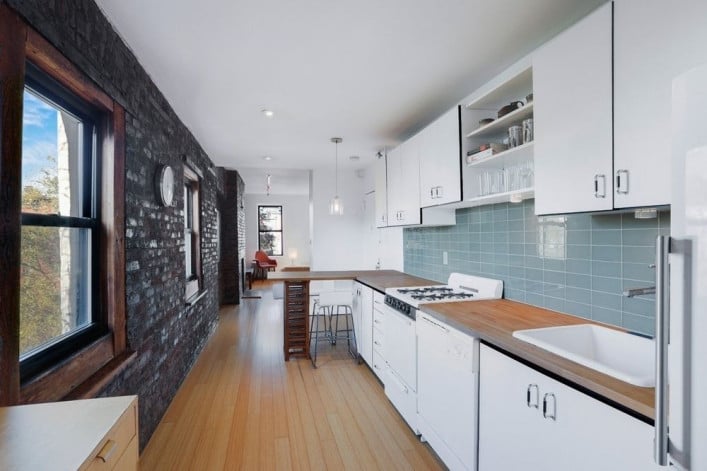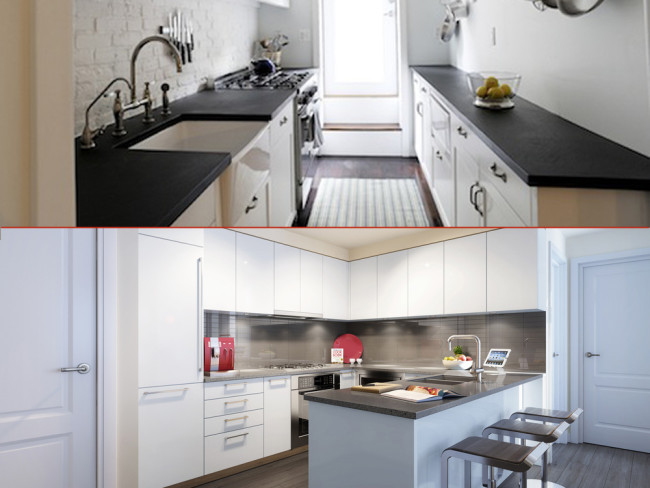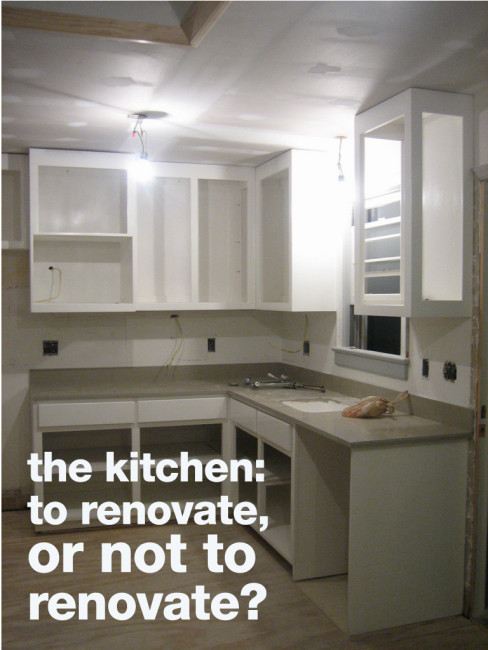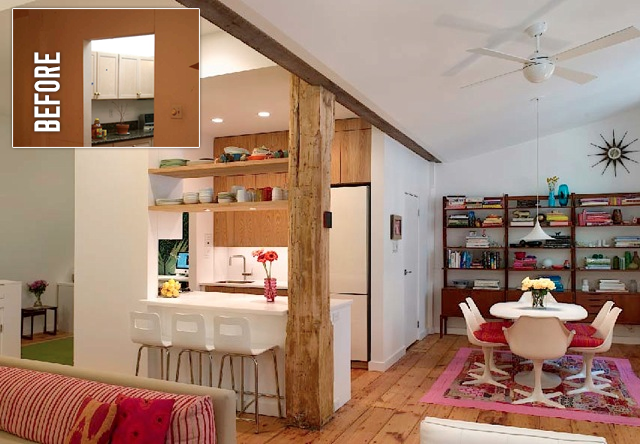I'm seeing the term 'Pullman kitchen' in listings. What does that mean?

This kitchen in an East Village tenement apartment has counters on only one side, but crucially for making it a Pullman kitchen, it is a space that you walk through, in this case to get from the bedroom to the living room.
Pullman kitchens get their names from the layout of kitchens in Pullman train cars. In other words, they're long and narrow.
In this way, they're similar to galley kitchens, but not exactly the same. Asher Lipman, founder of nycRenovationCoach explains, "In the recent past, Pullman kitchens and galley kitchens got confused. They’re very similar in terms of structure. They’re small, narrow-ish kitchens. But the big distinction is that a Pullman kitchen is open on both ends, versus a galley kitchen, which is more confined."
SFGATE, a San Francisco news site, argues that Pullman kitchens can end at a wall and be called, "dead-end Pullmans," but Lipman says that the railroad origins of the layout mean that you have to be able to pass through the kitchen like you would in a train car.
Pullman kitchens are common in tenement buildings, Lipman says, because of the emphasis tenement developers put on building cheaply and maximizing the use of space, with little regard for comfort. This is great if you're not big on cooking, and Pullman kitchen layout can have more storage than some of their other kitchenette counterparts, but there aren't many other obvious upsides to this arrangement.
The kitchens can have counters on both sides or they can be one-sided. If a two-sided Pullman kitchen is opened up on one side to create an island, Lipman believes that it's no longer a true Pullman. Nevertheless, brokers may use the term liberally.
"Lately brokers have been pretty expansive about the definition," Lipman says. "They’ll kind of call anything a Pullman kitchen. It’s like anything else, like neighborhood names."
You Might Also Like





























